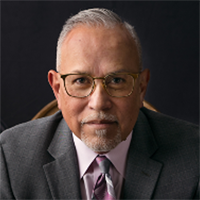The Mississippi Momentum
I remember like it was yesterday, but it was almost eight years ago that I arrived at the Jackson Public Schools Parent and Teacher Center in winter 2013. What was supposed to have been a routine Language Essentials for Teachers of Reading and Spelling (LETRS®) training session ended up being anything but typical when a terrible ice storm hit the south, leaving me stranded at the Dallas/Fort Worth airport for an entire day. When I finally arrived in Jackson, I rushed straight to the training location in the same faded jeans, bulky sweatshirt, running shoes, and cap that I had been wearing for the past two days—and despite the rough start, the session turned out to be one of the most enjoyable and energy-packed of my career. The audience consisted almost entirely of Mississippi Department of Education (DOE) personnel who were contemplating whether to roll out LETRS training across the state, and to this day I regard many of those in attendance as my friends and colleagues.
Although that session was memorable for a variety of reasons, it was not actually part of the state’s initial LETRS rollout. In fact, Mississippi’s transformation began long before my arrival, mainly due to studies conducted by the Barksdale Reading Institute (BRI) that focused on the state’s Educator Preparation Programs (EPPs) along with a later-established partnership with the Mississippi DOE.
Founded by Jim and Sally Barksdale to improve Mississippi students' pre-literacy and reading skills, the BRI recommended using LETRS to teach what we now call the Science of Reading to pre- and in-service teachers across the state. After using the BRI’s recommendation to develop a state literacy plan, the Mississippi DOE successfully implemented a statewide educator training schedule, trained thousands of classroom teachers and preservice candidates, and provided support through highly knowledgeable and highly trained coaches. But although the Mississippi DOE’s early involvement was a resounding success, it is only half of the story.
After the BRI finished conducting its second review of the state’s 15 EPPs at the end of 2015, the Mississippi Momentum Initiative began in partnership with those EPPs in 2017 and I was asked to return to Mississippi to work with a cohort of university and college professors who wanted to learn more about the LETRS knowledge base (in other words, the Science of Reading). My work with almost 40 faculty members over the next two years eventually led to a learning model unlike any other—and all because my university colleagues wanted to improve their craft.
Initially, I taught lessons while the professors observed. This segued into a team-teaching delivery of instruction, which in turn led to me watching their lessons and facilitating feedback and review sessions afterward. It was truly a collaborative effort, with me learning from them as well as them learning from me. Not only did I improve their understanding of the Science of Reading, we also improved each other’s Science of Teaching. One of the biggest compliments I received was when one of my university colleagues introduced me to her undergrad students as her teacher. Eventually, I became known as the professor of professors.
After nearly 20 years of hard work led by a state DOE that did not lose sight of its vision and a fruitful partnership between the BRI and LETRS, Mississippi started reaping much-deserved rewards. In 2019, the state achieved the No. 1 spot in the nation for gains on the National Assessment of Education Progress (NAEP), with grade 4 students making the largest score gains from 2017 to 2019 in reading and math.
The results were so compelling that other states began reaching out to Mississippi DOE officials and BRI CEO Kelly Butler, asking about their formula for success. Both organizations responded with two recommendations: Educators must understand how to teach reading and know the science behind it, and the Science of Reading should be part of every EPP in the country. As a result, Arizona, Colorado, Missouri, Massachusetts, North Carolina, and Ohio entered into a multi-state initiative supported by the BRI and other private foundations with the intent to bring institutions of higher learning (IHLs) to the literacy table. The ultimate aim? To ensure that all preservice candidates are ready to teach reading the minute they finish their training and step into a classroom.
We’ve learned a lot from the Magnolia State. We’ve learned that perseverance pays off, that we must always keep the goal of improving student achievement clearly in sight, and that all stakeholders—from state officials to IHL faculty members—must know how to push forward the Science of Reading agenda.
Thank you, Mississippi! Your momentum is spreading across the country.
Listen and learn more about Mississippi’s incredible journey in our upcoming podcast The Mississippi Momentum and the Science of Reading, to be released in June.


